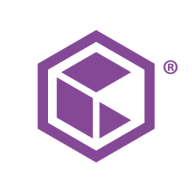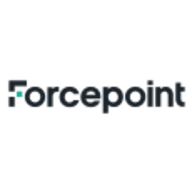



Find out what your peers are saying about Fortinet, Netgate, OPNsense and others in Firewalls.
Clients are now comfortable and not wasting productive hours on IT support.
The automation part is giving us a cost benefit and speed; we can react faster.
It's a very useful tool to mitigate and protect your enterprise.
The biggest return on investment when using Cisco Secure Firewall is that there's no waste in any infrastructure cost and licensing costs for us.
From my point of view, the biggest return on investment when using Cisco Secure Firewall is the single pane of glass, which is a huge plus for us.
The biggest return on investment for me when using Cisco Secure Firewall is reliability and robust network design.
Cybersecurity ROI could be $1 or $100 million, depending on the risk of data behind it.
They offer very accurate solutions.
The quick resolution of issues with Fortinet FortiGate is due to the support of the company and the fact that the equipment is easy to work with.
I would rate the technical support for Fortinet FortiGate a ten out of ten.
I have to provide many logs, yet problems remain unresolved, often requiring workarounds rather than solutions.
I have been working with them on firewalls, wireless, switching, and routing, and the support is the best.
They have expertise and provide solutions for the most difficult problems.
The number of people who know Commvault Cloud is lesser compared to Veeam.
Customer support has very closed departments, requiring us to shuffle between them to get one thing done because representatives have limited accessibility.
Unlike Fortinet where you can escalate an issue and quickly get responses from the development team, Forcepoint's process seems slow and challenging.
Technical support is sometimes slow to respond, and it takes longer to resolve issues.
On a scale of 1 to 10 for customer service for Forcepoint Next Generation Firewall, I would rate it at least 9, 9.5.
They scale up really well from smaller models like the FortiGate 40 and 50 to bigger sites with the FortiGate 100 for more throughput - up to enterprise datacenters.
The variation comes in terms of the interfaces and throughputs, but from a security perspective, you get the same benefit, irrespective of whether you have an entry-level unit or an enterprise.
We determine sizing based on multiple factors: number of users, available links, traffic types, server count, services in use, and whether services will be published.
Scalability presents a challenge.
Compared to FortiGate and Palo Alto, it lags in configuration and other aspects.
Even with the highest one, the 4600, we still face issues, particularly when transitioning between screens; it becomes very slow.
There are restrictions in the firewall manager and limitations when deploying for cloud environments.
We're experiencing 99.999% availability consistently.
I would rate the stability of Fortinet FortiGate a ten out of ten.
Currently, we are experiencing a general outage of one of the main internet service providers of the Dominican Republic, and we have not been impacted in our operations because with SD-WAN, we have another internet service provider and we are working with the second WAN connection without any disruption.
We have often encountered split-brain scenarios during failover processes and code upgrades, which have been persistent problems for us.
We work with a cluster with high availability, so if something goes wrong, we have it functioning.
Cisco Secure Firewall offers exceptional performance and stability.
I have not faced any downtimes with Commvault Cloud.
Commvault Cloud is highly stable, and I would rate it a ten out of ten.
Investing in a solution that can accommodate such growth would be more cost-effective than repeatedly purchasing new hardware.
While Fortinet claims to offer a comprehensive network solution, it falls short in addressing computer application issues, particularly server security.
When considering Sophos XG, which we also use, the logging and reporting functionality is notably more efficient.
My ongoing complaint for the last six years has been the lack of CLI functionality, which hinders my ability to work on the firewall, alongside concerns regarding deployment time.
Firepower Management Center is quite out of date compared to other vendors.
The integration between Cisco products themselves presents difficulties, such as SD-WAN configuration.
I feel that the support is not yet up to the mark, with not enough professional engineers to provide assistance.
Fast response and efficient handling of issues, similar to how Fortinet responds, would be great.
AI improvements could be beneficial, as having AI capabilities has become an important checkmark feature.
I recommend that additional features be included in a single license to avoid the need for extra licensing costs.
Last year, I renewed the support for three years, which can sometimes be expensive but depends on the security benefits and how it helps us.
It offers cost savings as it is generally cheaper than the competition.
It is about 20% cheaper.
It's good to have them, however, it costs us a lot.
It's considered a premium, but people pay that price for Cisco.
There are a lot of in-place contracts for us that provide the benefit of discounts.
Commvault Cloud is expensive, and there is room for the price to be 10-15 percent lower than what they are charging currently.
The costs can be high since additional features require separate licenses.
In terms of pricing, I would place Forcepoint in the middle when compared to other firewalls like Fortinet and Palo Alto.
In terms of security, we have not experienced any security flaws or loopholes, and it has proven to be quite stable.
FortiGate has helped reduce the risk of cyberattacks that might disrupt our client's production.
These features help reduce our downtime, manage the ISPs, and deploy SLAs for all the website traffic.
What stands out positively about Cisco is their training and support, which has effectively prepared engineers to work with their products.
This is very important to my organization, as we work extensively with security because we are a bank, so we can keep the data safe.
Cisco Secure Firewall allows me to safeguard Layer 7 or Layer 3 and manage the security rules with the business needs of my organization.
We can back up unlimited TBs due to our per node license.
Other features include endpoint solutions, integration with Office 365, ransomware protection, archival for long-term retention, and no ingress or egress charges.
With Forcepoint, this process is simplified compared to others like Fortinet.
The most valuable features of Forcepoint Next Generation Firewall are the advanced threat protection, including features like IPS and DDoS prevention, which help avoid internal DDoS attacks.
From a configuration standpoint, it has been easy to manage.
| Product | Market Share (%) |
|---|---|
| Cisco Secure Firewall | 6.2% |
| Fortinet FortiGate | 20.4% |
| OPNsense | 11.0% |
| Other | 62.400000000000006% |
| Product | Market Share (%) |
|---|---|
| Commvault Cloud | 6.0% |
| Veeam Data Platform | 11.4% |
| Rubrik | 5.9% |
| Other | 76.7% |
| Product | Market Share (%) |
|---|---|
| Forcepoint Next Generation Firewall | 0.5% |
| Fortinet FortiGate | 20.4% |
| OPNsense | 11.0% |
| Other | 68.1% |




| Company Size | Count |
|---|---|
| Small Business | 350 |
| Midsize Enterprise | 130 |
| Large Enterprise | 187 |
| Company Size | Count |
|---|---|
| Small Business | 181 |
| Midsize Enterprise | 126 |
| Large Enterprise | 212 |
| Company Size | Count |
|---|---|
| Small Business | 57 |
| Midsize Enterprise | 24 |
| Large Enterprise | 81 |
| Company Size | Count |
|---|---|
| Small Business | 27 |
| Midsize Enterprise | 8 |
| Large Enterprise | 10 |
Fortinet FortiGate excels in providing integrated VPN, firewalling, and Unified Threat Management (UTM) with centralized management and high availability. It supports remote access and comprehensive threat protection, making it a preferred choice for securing networks.
Fortinet FortiGate offers a robust security platform with features such as strong intrusion prevention, application control, and web filtering. Its integration with Active Directory and SD-WAN functionality provides scalable solutions for large networks. Users appreciate its ease of use through centralized management interfaces, ensuring robust security with flexible configurations. However, FortiGate could enhance its graphical interface and technical support responsiveness, address firmware bugs and costly licensing, improve logging, integrate better with third-party tools, and strengthen scalability and memory for log storage. Complexity in configuration and the need for intuitive features are noted challenges, and there's a demand for advanced security, zero-trust capabilities, and AI integration.
What are the key features of Fortinet FortiGate?Fortinet FortiGate is widely implemented across industries like education, finance, and government. Companies use it for firewall protection, VPN, and SD-WAN capabilities, ensuring secure perimeter and data center security. It facilitates remote access management and traffic routing optimization, offering reliable security and connectivity solutions.
Cisco Secure Firewall provides comprehensive network security with advanced features such as application visibility, URL filtering, and malware protection. It combines a user-friendly interface with robust VPN capabilities, making it a reliable choice for varying network environments and industry applications.
Cisco Secure Firewall offers exceptional protection with its integration into Cisco's broader ecosystem, ensuring enhanced threat detection and policy unification. Despite its complexity in command-line interfaces and management, Cisco Secure Firewall remains a potent tool for safeguarding data. It is widely adopted for edge security, VPN services, perimeter defense, and traffic segmentation, especially in hybrid settings. Essential sectors like banking and telecom benefit from its stable connectivity and centralized security management. Though there are challenges with costs and support for third-party APIs, the firewall's scalability and high availability provide comprehensive support for protecting network assets.
What are the key features of Cisco Secure Firewall?Cisco Secure Firewall is widely implemented across sectors like banking, education, ISPs, and telecoms. It fortifies data centers and network edge security, delivering strong protection for client access, hybrid environments, and intrusion prevention. In these industries, firewall solutions ensure secure connectivity and manage RTU traffic effectively, leveraging centralized management and integration with Cisco's security tools.
Commvault Cloud is the ultimate cyber resilience platform built to meet the demands of the hybrid
enterprise. Beyond its core functionality of data backup and recovery across diverse workloads, including applications, databases, virtual machines, and files, Commvault Cloud stands out as a robust defense against ransomware. Going beyond backup, the platform integrates advanced data security features such as encryption, access control, and threat detection, safeguarding against unauthorized access and cyber threats.
With tools for data management, classification, and migration, businesses can optimize storage costs, enhance accessibility, and comply with regulations seamlessly. Boasting cloud integration with major providers like AWS, Azure, and Google Cloud, Commvault Cloud leverages the scalability and flexibility of the cloud for comprehensive data protection and management. The platform's automation capabilities streamline tasks, and its reporting and analytics features provide valuable insights into data usage, potential risks, and optimization strategies. Commvault Cloud is not just a security tool; it is a key component of cyber resilience, enabling organizations to not only protect against cyberattacks but also recover swiftly and minimize the impact of incidents. Elevate your cyber resilience strategy with Commvault Cloud.
Forcepoint Next Generation Firewall is a versatile and comprehensive solution for perimeter security, offering features such as SD-WAN, IPS, VPN, and cloud or on-premises subscription keys. It is preferred by many clients over Cisco and is used for obligation redundancy, VPN access, and as the main point of security in infrastructure.
The product is praised for its simplicity, flexibility, complete feature set, scalability, and central management capabilities. Other valuable features include IPS, firewall, sandbox, application control, filtering, security management center, connectivity, and integration capabilities.